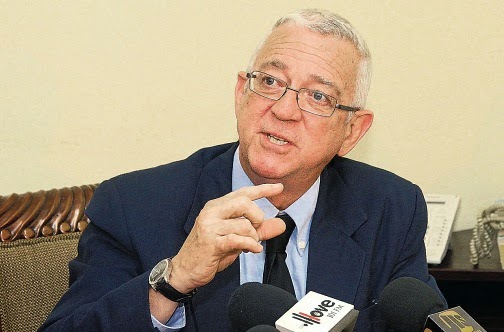The CXC results are now out, and the Ministry of Education
reported that there are improvements in core subject areas but it is still not
“good enough.” I remembered last year, I had a friend who was sitting CSEC
mathematics, very good friend. I questioned him on core topics that I know will
come on the paper and he was clueless. I sat with him a few days I went through
some core topics that he was oblivious about and he later informed me that he
got grade 3. I was happy I could help.
Prior to students receiving their results, teachers, parents
and students were anxious. Students were anxious to see their grades, parents
were anxious to see the end result of their years of ‘investments’, teachers
were anxious to see the aftermath of their many efforts, hours of extra
classes, retreats, camps, seminars etc. The results came out and I can only
imagine the mixed emotions sparkling around, from happiness, to sadness, tears
of joy, to tears of disappointment.
I know that many schools congratulated all those who have
done well, from those who got the nine, ten distinctions to those who only pass
just five subjects. The analysis of this year’s passes have been done,
and the many critics did give their cliché analyses of the
circumstances. In the midst of all the celebrations, I have to agree with the
minister that even though there are improvements, it is still not got enough.
And in our 52 years of independence our education system continues to suffer,
failing our students, our society and our nation.
The Minister reports, “Candidates
who sat this year's CSEC examinations recorded an improvement in 14 of the 35
subject areas, with mathematics recording the highest jump - a 13 percentage
point increase in passes -moving from 42 per cent last year to 56 per cent.”
Additionally, “Overall, the science subjects recorded the largest improvement
in passes, with seven percentage points.”
This is how it ought to be, imagine of this trajectory continues, Jamaica will have something to celebrate. As such, we would be on a path of growth, being that the overall growth, development and production of a country is solely based on how educated the nation is. There is an increasing demand for implementing STEM education and since the science and mathematics passes have improved, I must say there is hope. But how can we reach the remaining 44 per cent? According to Thwaites, the improved performance in mathematics is attributable to a number of initiatives implemented in high schools under the ministry's national mathematics teams. If this is the case, I commend the ministry for such initiative and hope that it will continue and be even better.
I also commend all the stake holders who played a part in
the improvements of this year’s results. The celebration would be on now, but
the attention will soon be shifted to those who failed. I am just curious, the critics have proved me right, I expected nothing different than the cliché
notions of blaming teachers and the ideology of failing schools.




